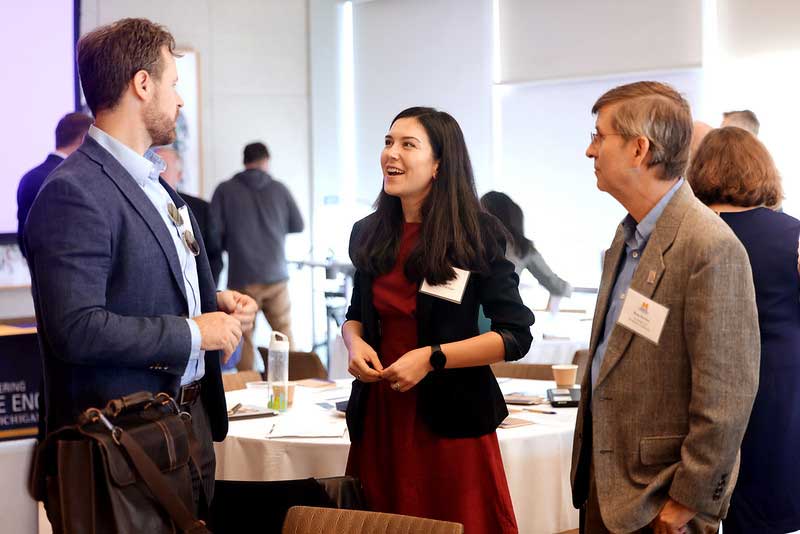
The Michigan Initiative for Sustainable Aviation Inaugural Symposium Becomes Raving Success
Industry experts are taking a stand on sustainable aviation

Industry experts are taking a stand on sustainable aviation
The recently established Michigan Initiative for Sustainable Aviation (MISA) has taken flight here at Michigan Aerospace after hosting the first-ever sustainable aviation symposium at the University of Michigan. The goal of this exclusive event was to bring industry leaders together to engage in active discussions, not only about potential solutions but also about how to implement operational changes to address the aviation emissions problem.

The Johnson Room at the Lurie Engineering Center on North Campus buzzed with enthusiasm as industry leaders, researchers, and experts gathered to chart a course toward a zero-emissions aviation industry. Throughout the symposium, attendees embarked on the exploration of the aviation industry’s future and the groundbreaking research undertaken at Michigan Aerospace. The agenda covered a wide range of topics, including aircraft electrification, technology integration and harmonization, and the potential of hydrogen-powered aircraft.
Established earlier this year, MISA aims to “Leverage interdisciplinary partnerships to tackle environmental challenges in aviation.” In response to the mounting environmental concerns related to the aviation industry, members of Michigan Aerospace from diverse research domains have joined forces to collaborate on the increasingly pressing challenges.
This event fostered a sense of enthusiasm and a shared commitment to advancing sustainability among all participants. MISA is actively seeking collaborative partners to establish a research and education center. This center will serve as a hub for addressing technical challenges, advising on policy matters, and nurturing the workforce that will play a pivotal role in driving the transformation of the aviation industry toward a more sustainable future for aviation.
Read the full article from Michigan Engineering here: